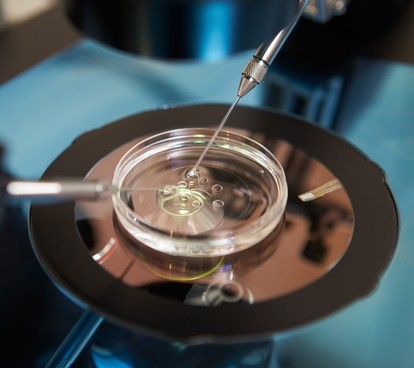Key changes from the HFEA’s proposal to modernising fertility legislation

Key changes from the HFEA’s proposal to modernising fertility legislation
The UK’s regulator for fertility treatment and embryo research, the Human Fertilisation and Embryology Authority (the ‘HFEA’) has published a proposal of changes to existing fertility laws, with the aim of modernising the Human Fertilisation and Embryology Act 1990 (as amended). This follows a public consultation that was undertaken earlier this year, which was split across the following 4 areas, and which were specifically identified as being the areas where the HFEA consider that modernisation is required:
- Patient safety and promoting good practice
- Access to donation information
- Consent
- Scientific developments
There are suggestions which would have a significant impact on the existing legislative position, and some interesting amendments are proposed to the legislation. The proposal can be read in full here, but we have highlighted some of the suggestions made as follows:
Patient safety and promoting good practice
The proposals in this section largely relate to the HFEA developing its powers in regard to inspections and regulatory enforcement powers, in order to ensure that proportionate action can be taken to protect patients.
It also makes suggestions that the legislation should be revised to accommodate developments in the way that fertility services are provided, whether this is online or in person.
Access to donor information
The legislation on donor anonymity changed this year, following the ‘Opening the Register,’ which means that donor-conceived individuals born via a donation registered after 1 April 2005 could access non-identifying information about their donors at age 16, and receive their donor’s name, date of birth and last known address at age 18. This was due to the fact that following a legislative change in 2005, it is no longer possible to donate sperm, eggs or embryos anonymously. This change has already encouraged significant discussion in the fertility sector about the benefits and challenges that the release of such information can bring, and the consideration of the type of support that should be provided to donors and their families.
The proposal made by the HFEA today goes a step further, and suggests that the legislation should enable the removal of donor anonymity from the birth of any child born from donation.
The proposal recognises that a gradual approach to reach this position may be appropriate. This section also makes other suggestions in regard to a requirement for all donors and recipients to have implication counselling sessions before starting treatment, as well as for donors and recipients to be aware of donor identity being discovered through means other than the HFEA Register (e.g. social media or DNA testing websites).
Consent
The proposal suggests automatic record sharing between fertility clinics and NHS records, in order to ensure more ‘joined-up and safer patient care.’
The proposal also makes broader suggestions towards a revised consent regime, to uphold the following principles:
- Reflect current best practice and guidance, for example the GMC principles of consent
- The importance of free and informed consent
- Dynamic consent – whereby any party involved can change their mind
- Simplification
- Recognition of modern families
- The special status of the embryo
The current legislation permits patients to consent to the use of embryos in research to be donated to specific named projects. A separate proposal has also been made to amend the legislation to allow patients donating embryos to consent to research embryo banking, so as to allow more patients to support embryo research and to make it easier for patients whose clinics are not involved in a specific project.
Scientific developments
Lastly, the proposal discusses the innovation of fertility treatment, and makes the suggestion that the legislation should give the HFEA greater discretion to support such innovation (such as through the use of trial or conditional approvals), and that the legislation should be amended so as to accommodate future scientific developments.
A suggestion made is that by amending the regulatory framework, a greater number of novel processes could be offered in a clinic under regulatory oversight, while generating further evidence in regard to the process in order to determine whether to authorise the process more widely.
Amongst other interesting suggestions, there is also a proposal in regard to the interventions in the nuclear DNA of gametes or zygotes for the purposes of germline genome editing. This is currently not permitted under legislation, but the HFEA outline that it may be useful for some patients to avoid passing on a serious heritable condition, although the proposal acknowledges the significant safety and efficacy issues, as well as the ethical debate that may arise from this.
It will be interesting to see how these proposals are received and considered by the government, particularly as some of the suggestions (if implemented) would mark a significant departure from the existing legislative position.



